
We are thrilled that JLR’s sustainability credentials align with our own, and that the business recognises the critical role solar can play in maintaining the UK’s shift to electrification.
Ben Marchant
3ti
Jaguar Land Rover installs two Papilio3 solar EV charging hubs at its Halewood plant, supporting staff charging needs and advancing the site’s transition to become JLR’s first all-electric production facility.
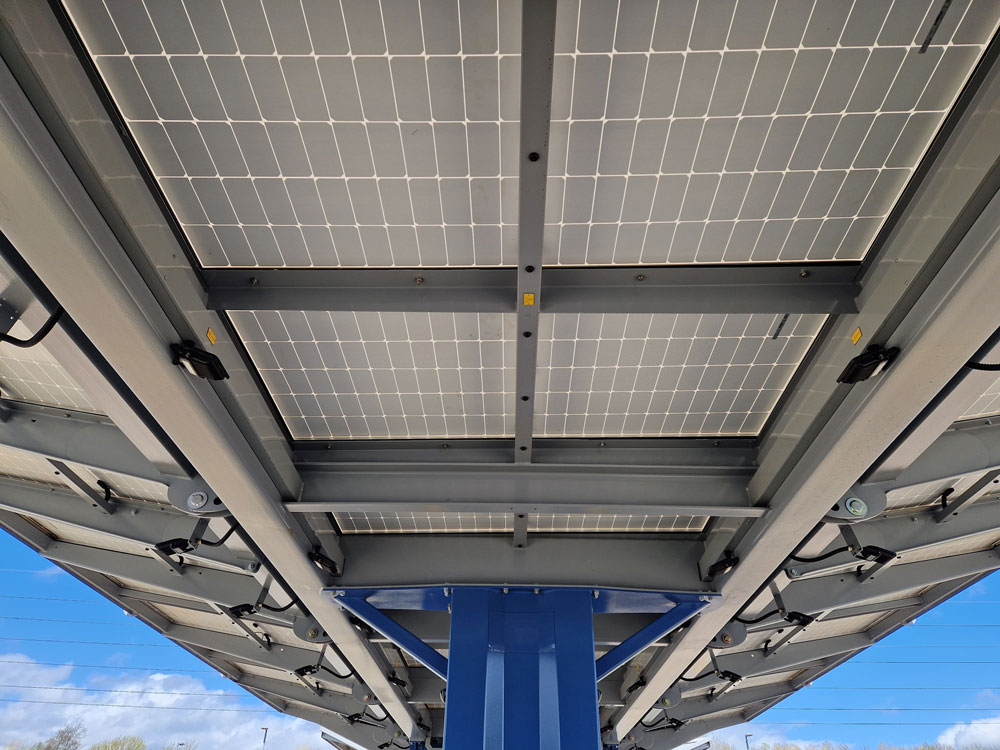
Jaguar Land Rover (JLR), a global leader in luxury automotive manufacturing, is undergoing a significant transformation through its ‘Reimagine’ strategy. This ambitious plan aims to reposition the company as an electric-first, modern luxury carmaker, with the Halewood site in Merseyside designated to become JLR’s first all-electric production facility from 2025.
As part of this transition towards zero-emission transport, JLR recognised the importance of supporting its workforce in adopting electric vehicles. The company sought to provide practical and sustainable charging solutions for employees at the Halewood site, demonstrating its commitment to comprehensive electrification beyond just vehicle production.
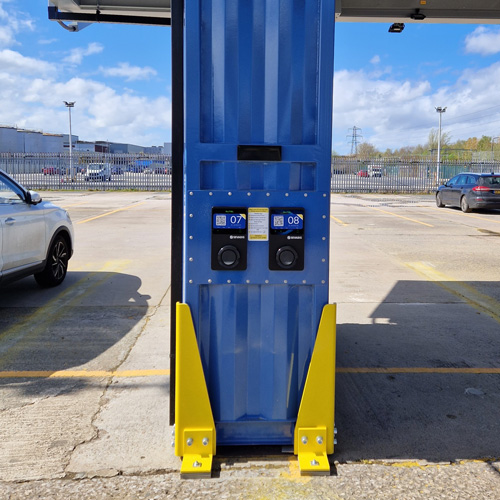
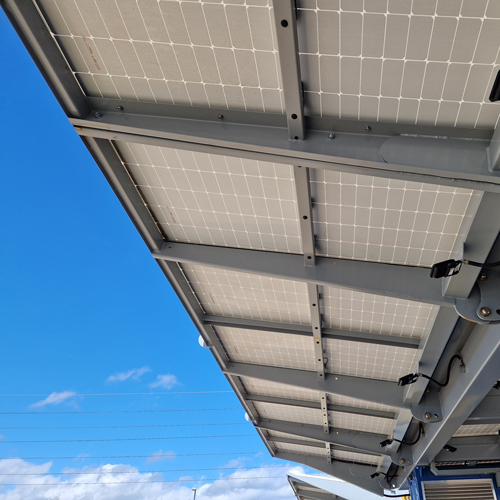
JLR faced several specific challenges in implementing workplace charging infrastructure:
The solution needed to be scalable, quickly deployable, and complement JLR’s sustainability goals while providing practical charging options for employees.
3ti installed two Papilio3 solar EV charging hubs at the JLR Halewood site, providing:
The Papilio3 units, built around recycled shipping containers, aligned perfectly with JLR’s sustainability focus while providing a practical charging solution for staff.
The partnership between 3ti and JLR delivered significant benefits:
Ben Marchant, Chief Operating Officer at 3ti, highlighted the strategic importance of the installation: “We are thrilled that JLR’s sustainability credentials align with our own, and that the business recognises the critical role solar can play in maintaining the UK’s shift to electrification. We’d like to encourage more businesses to follow this example; this is a well-proven mechanism for making EV ownership a viable option for everyone, regardless of access to home charging.”
The JLR Halewood installation serves as a powerful example of how manufacturing facilities can support their workforce’s transition to electric vehicles while advancing their own sustainability objectives, setting a benchmark for the automotive industry across the UK.
Jaguar Land Rover installs two Papilio3 solar EV charging hubs at its Halewood plant, supporting staff charging needs and advancing the site’s transition to become JLR’s first all-electric production facility.

Jaguar Land Rover (JLR), a global leader in luxury automotive manufacturing, is undergoing a significant transformation through its ‘Reimagine’ strategy. This ambitious plan aims to reposition the company as an electric-first, modern luxury carmaker, with the Halewood site in Merseyside designated to become JLR’s first all-electric production facility from 2025.
As part of this transition towards zero-emission transport, JLR recognised the importance of supporting its workforce in adopting electric vehicles. The company sought to provide practical and sustainable charging solutions for employees at the Halewood site, demonstrating its commitment to comprehensive electrification beyond just vehicle production.
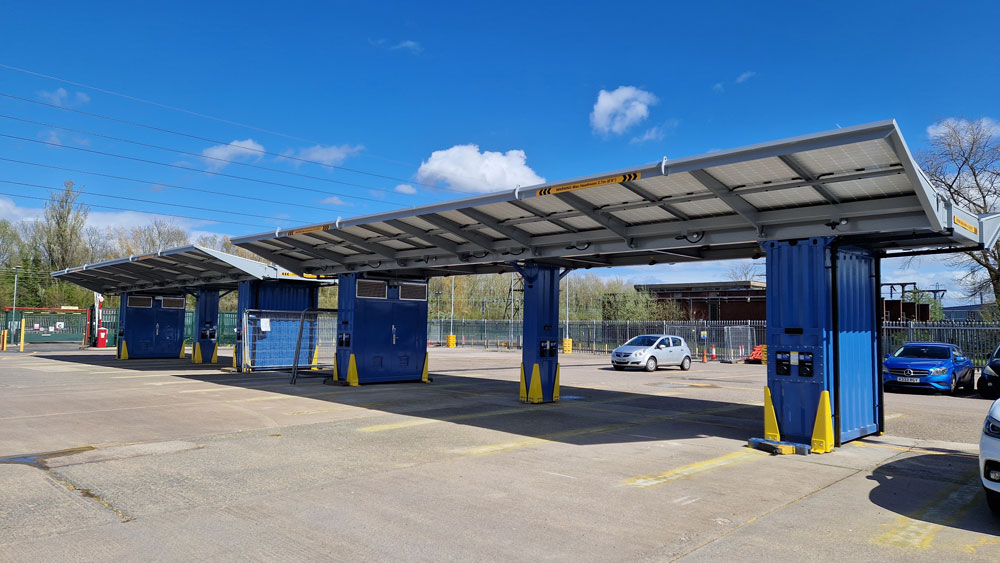


JLR faced several specific challenges in implementing workplace charging infrastructure:
The solution needed to be scalable, quickly deployable, and complement JLR’s sustainability goals while providing practical charging options for employees.
3ti installed two Papilio3 solar EV charging hubs at the JLR Halewood site, providing:
The Papilio3 units, built around recycled shipping containers, aligned perfectly with JLR’s sustainability focus while providing a practical charging solution for staff.
The partnership between 3ti and JLR delivered significant benefits:
Ben Marchant, Chief Operating Officer at 3ti, highlighted the strategic importance of the installation: “We are thrilled that JLR’s sustainability credentials align with our own, and that the business recognises the critical role solar can play in maintaining the UK’s shift to electrification. We’d like to encourage more businesses to follow this example; this is a well-proven mechanism for making EV ownership a viable option for everyone, regardless of access to home charging.”
The JLR Halewood installation serves as a powerful example of how manufacturing facilities can support their workforce’s transition to electric vehicles while advancing their own sustainability objectives, setting a benchmark for the automotive industry across the UK.
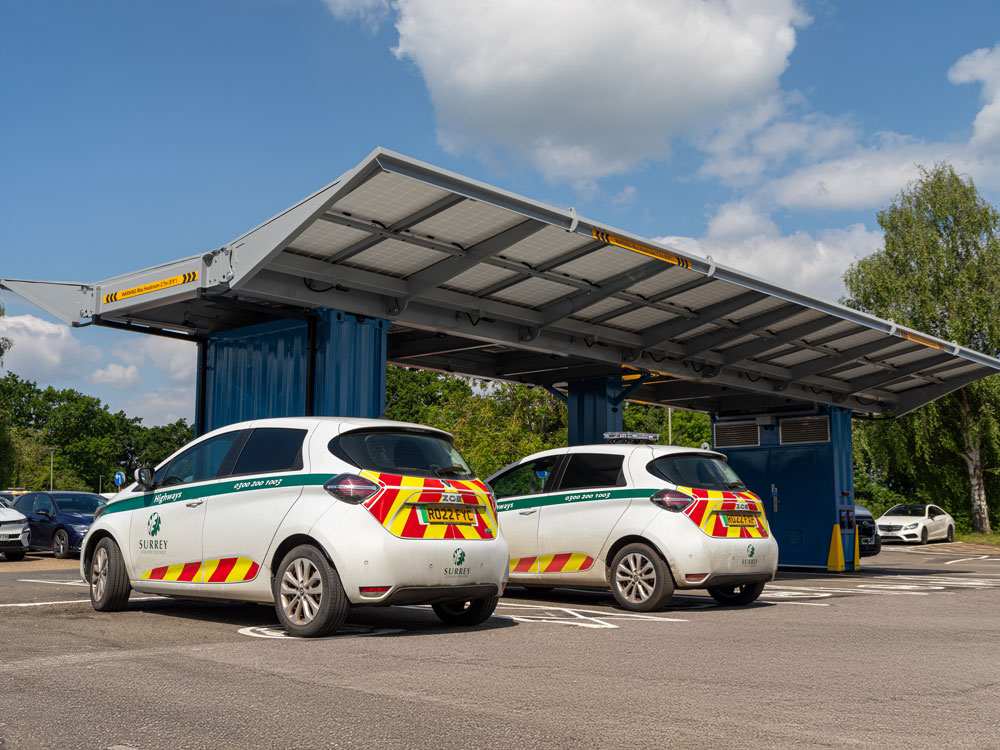
SCC’s growing electric vehicle fleet will be powered by Papilio3, supporting the council’s sustainability strategy. The solution was chosen to fulfill the urgent need for EV charging infrastructure at the site.
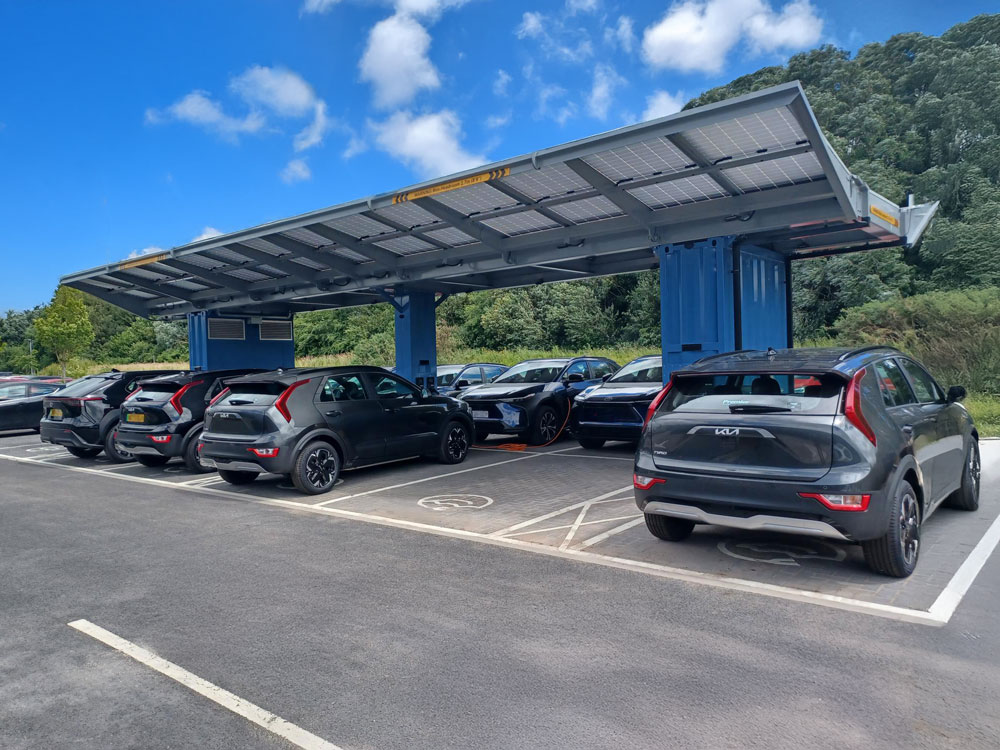
“The force’s target is to be Net Zero for all scope 1 and 2 emissions by 2040, and it is hoped exploring the use of technology such as this – which uses solar panels on its roof – will help us achieve that.”
Keith Dickinson - Director of Resources Merseyside Police